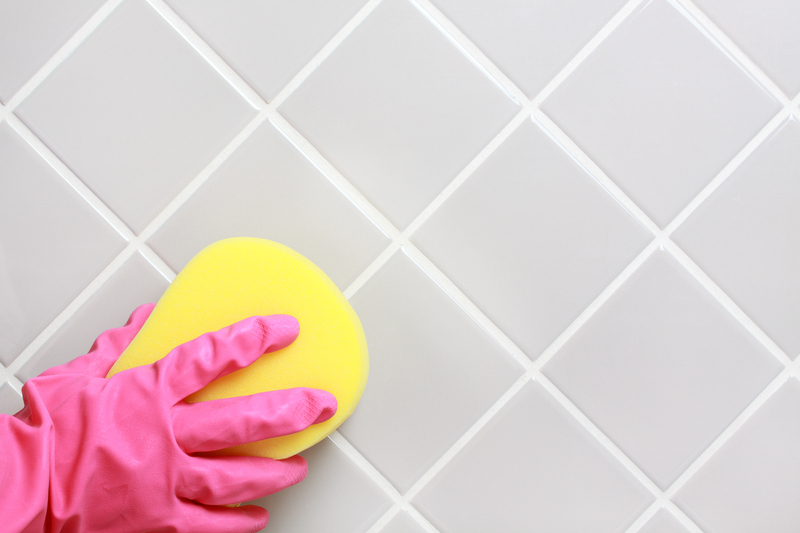Freshen Up Your Space: Tackling Damp Smell Issues
Posted on 26/09/2025
Freshen Up Your Space: Tackling Damp Smell Issues
Does your home or office have a persistent, unpleasant damp smell? You're not alone--many people struggle with musty odors that just never seem to disappear. A damp smell can infiltrate living rooms, bathrooms, basements, and even bedrooms, creating an uncomfortable environment and indicating potential underlying issues. In this comprehensive guide, we'll explore everything you need to know about damp odors, including their causes, prevention tips, and effective solutions. Say goodbye to musty smells for good and enjoy a fresher, healthier space.
What Causes Damp Smell in Indoor Spaces?
To effectively eliminate damp smells, it's essential to understand what causes them. Dampness typically occurs when moisture accumulates in an area without proper ventilation or drying opportunities. The lingering damp odor is often a warning sign of potential problems like water leaks, growth of mold, or persistent humidity.
Common Sources of Damp or Musty Odors
- Poor Ventilation - Spaces that lack airflow, such as basements, closets, or bathrooms, can trap moisture and foster mold growth.
- Water Leaks - Even minor leaks from pipes, roofs, or windows can leave areas damp for extended periods, especially behind walls or under floors.
- Condensation - In cooler months, condensation on walls and windows can create a stale, damp scent.
- Rising Damp - Moisture from the ground can rise through the foundation of a building, especially in older properties.
- Wet Laundry - Hanging wet clothes indoors without adequate ventilation can quickly make rooms smell damp.
- Mold and Mildew - Fungi thrive in moist conditions and release spores that cause both health risks and a persistent musty odor.

Why Should You Care About Damp Smells?
A damp smell is more than just an olfactory annoyance; it can affect your indoor air quality and overall well-being. Here's why addressing the issue is vital:
- Health Risks: Exposure to mold spores can cause allergic reactions, respiratory issues, and worsen asthma, especially in children and the elderly.
- Property Damage: Continued dampness can compromise the structural integrity of buildings, causing wood rot, rust, and damage to walls and floors.
- Decreased Comfort: Musty odors make your living or working environment less enjoyable.
- Pest Infestations: Damp spaces attract pests like termites, cockroaches, and rodents.
Step-by-Step Guide to Eliminating Damp Smell and Freshening Up Your Space
Ready to refresh your environment? Follow these comprehensive steps to identify, treat, and prevent recurring damp odors:
Step 1: Identify the Source of Moisture
- Inspect basements, crawl spaces, and attics for any visible signs of water leakage or damage.
- Check for peeling paint, bubbling wallpaper, or warped wood, which can all be signs of hidden moisture.
- Examine plumbing and roof areas for slow leaks or pooling water.
Tip: Use your nose--damp areas are often easy to detect by their distinctive musty smell, even if they look normal.
Step 2: Address Water Issues
- Fix leaks immediately--this is essential to prevent further moisture accumulation.
- Seal any cracks in walls, floors, or windows that might let in water.
- Ensure gutters and downspouts are directing water away from your property's foundation.
Step 3: Improve Ventilation
- Open windows and doors daily, even for a short period, to allow fresh air to circulate.
- Install exhaust fans in bathrooms, kitchens, and laundry areas.
- Use ceiling fans to keep air moving in living rooms and bedrooms.
Did you know? Improved ventilation can significantly enhance indoor air quality and prevent damp smells from developing in the first place.
Step 4: Dry Out the Affected Area
- Use a dehumidifier to remove excess moisture, especially in basements or rooms prone to humidity.
- Place silica gel packets or moisture absorbers behind furniture or in closets.
- Hang up wet clothing outside whenever possible, or run dryers and extractor fans to speed up drying.
Step 5: Clean and Deodorize
- Wash all washable fabrics--curtains, cushion covers, and rugs can harbor musty odors.
- Clean carpets with a steam cleaner or professional carpet shampooing service.
- Scrub walls, tiles, and hard surfaces with disinfectant or vinegar solution.
- Sprinkle baking soda on soft furnishings and carpets; let it sit for an hour, then vacuum thoroughly.
Step 6: Eliminate Mold and Mildew
- Scrape off visible mold--the sooner, the better--to stop spores from spreading.
- Treat affected surfaces with specialized mold-killing sprays or diluted bleach. Always wear gloves and masks while cleaning, and keep the area well ventilated.
- If you discover severe mold infestations, seek professional remediation to ensure total safety and eradication.
Preventative Solutions: Keeping Damp Odor at Bay
Once you've tackled the immediate problem, incorporating routine maintenance and ongoing moisture management can keep your space smelling fresh over the long term.
Home Maintenance Tips for a Fresh-Smelling Space
- Regularly check for leaks around sinks, appliances, and exterior drainage systems.
- Clean out gutters and downspouts at least twice a year to prevent water buildup.
- Place dehumidifiers in areas with known humidity problems and empty them regularly.
- Store belongings neatly; clutter blocks airflow, allowing odors to linger.
Natural Remedies to Absorb Damp Smells
- Baking Soda: Excellent at neutralizing odors--fill small bowls and place them around affected rooms.
- Activated Charcoal: Highly porous, charcoal can absorb moisture and musty scents efficiently.
- Coffee Grounds: Place dried grounds in an open container to mask unpleasant odors.
- White Vinegar: Leave a cup of vinegar in the room; it will help absorb and neutralize foul smells naturally.
- Essential Oils: Add a few drops of tea tree, eucalyptus, or lavender oil to a diffuser for a pleasant, clean aroma.
When to Call in Professionals
Sometimes, despite your best efforts, that annoying damp smell won't disappear. In cases of recurrent mold outbreaks, extensive property damage, or unknown sources of moisture, don't hesitate to call in the experts. Professional moisture assessment and mold remediation services have the equipment and expertise to tackle difficult problems, ensuring your home is safe and fresh.

Frequently Asked Questions About Damp Odor Control
-
Q: Why does my house smell musty after heavy rain?
A: Heavy rain can reveal leaks or seepage issues in your home's foundation, roof, or walls. Addressing these vulnerabilities quickly is key to preventing persistent damp odors. -
Q: How can I keep my basement free of damp smells?
A: Consider sealing walls with waterproofing paint, using a dehumidifier, and ensuring that exterior landscaping diverts water away from your foundation. -
Q: Do air purifiers help with damp odors?
A: Yes, air purifiers with HEPA filters can help reduce airborne mold spores and improve air quality, but they should be combined with moisture control measures.
Conclusion: Enjoy a Fresh, Inviting Space Free from Damp Smell
A clean-smelling, dry indoor environment enhances comfort, supports good health, and boosts the value of your property. By understanding the causes of damp odor, following proactive cleaning and maintenance routines, and taking action as soon as an issue is noticed, you can transform your space into a fresher, more inviting haven.
Ready to freshen up your space and send damp smells packing for good? Start today and relish the difference that a clean, pleasant home makes!





